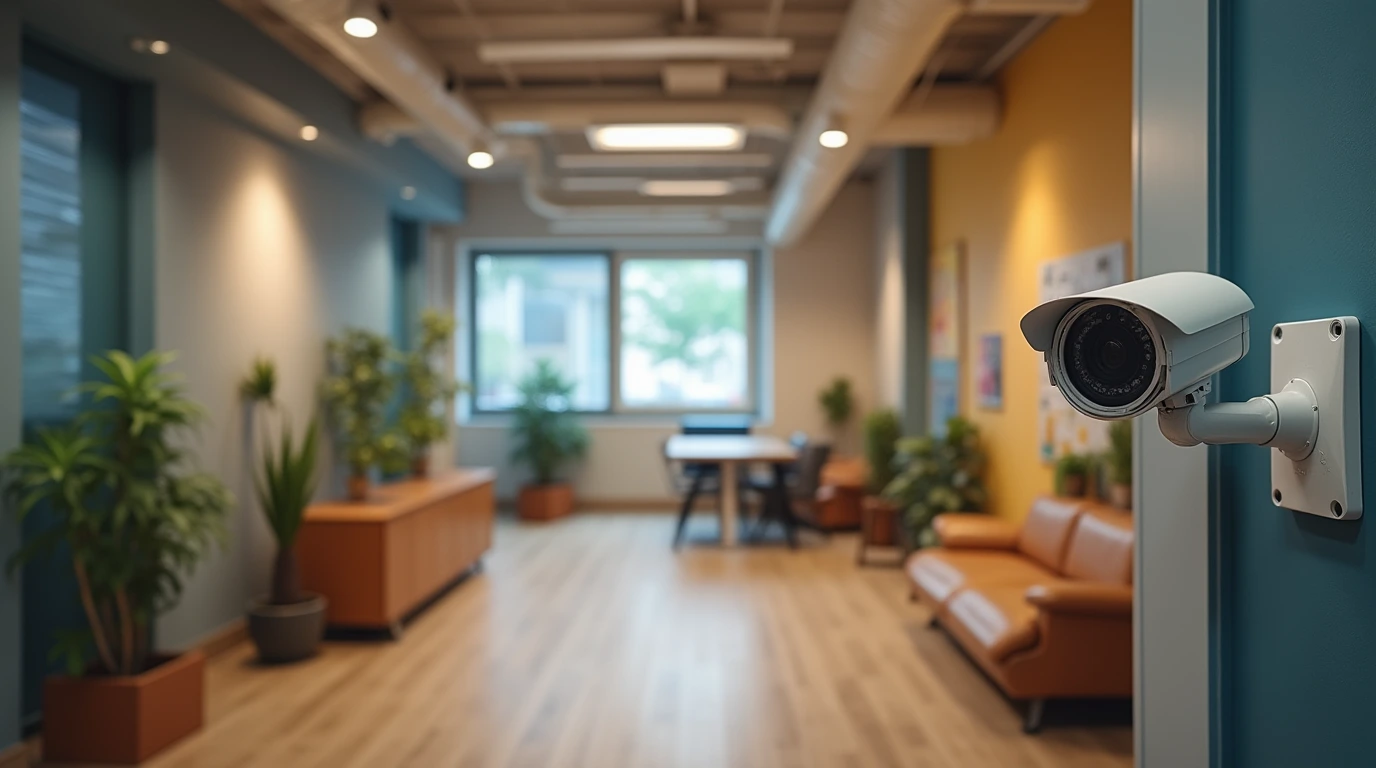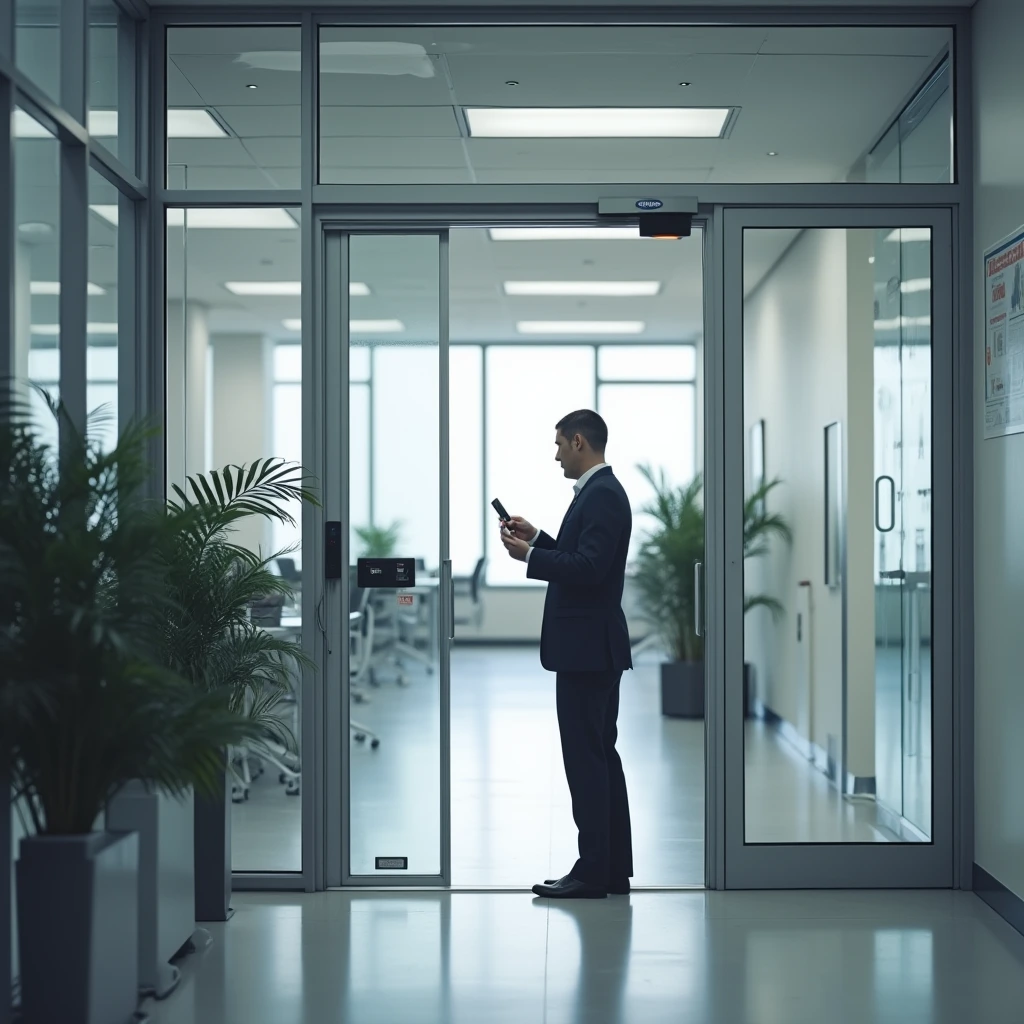A small business security system is designed to safeguard your business from theft, vandalism, and unauthorized access. These systems can be tailored to your needs and budget, incorporating a variety of components such as alarm systems, surveillance cameras, access control, and cybersecurity measures.
Table of Contents
ToggleWhy Security Systems Are Crucial for Small Businesses
The importance of security systems for small businesses cannot be overstated. They offer critical protection and peace of mind. Security systems help protect your assets from theft, but they also enhance the safety of your employees, increase operational efficiency, and even improve your business’s reputation.
For example, a good security system acts as a deterrent against theft. When employees and customers know that a business is under surveillance, the chances of theft decrease significantly. Moreover, these systems ensure that your employees are safe, providing them with a sense of security that fosters greater morale and productivity.
Another significant benefit is property protection. The ability to monitor your premises and assets at all times helps prevent losses from break-ins, vandalism, or accidents. Additionally, access control measures help keep restricted areas secure, ensuring only authorized personnel have access to sensitive spaces.
Security systems can also help reduce your insurance premiums, as many insurers offer discounts to businesses that are equipped with comprehensive security solutions. And in case something does go wrong, evidence collection through surveillance footage can be invaluable for law enforcement and for protecting your business interests.
Types of Small Business Security Systems

Alarm Systems are among the most fundamental components of a security system. They are designed to alert you and authorities when unauthorized access is detected. These systems can be monitored or unmonitored, depending on the level of oversight you require. Monitored systems alert a monitoring center, which can then notify emergency responders, providing a faster response to incidents. In contrast, unmonitored systems typically trigger loud alarms, warning intruders and nearby people.
CCTV Surveillance Systems offer a powerful way to monitor the activities in and around your business. These systems can be equipped with high-definition cameras that capture clear video footage, even in low-light conditions, thanks to night vision technology. CCTV systems also allow remote access, meaning you can monitor the security of your premises from anywhere via smartphone apps. This flexibility is crucial for business owners who may need to check on operations remotely.
Access Control Systems help manage who enters your premises, restricting access to sensitive areas. These systems can range from simple keypads to more advanced biometric scanners. With the ability to monitor access logs and set up different access levels for employees, you can ensure that only authorized individuals are entering restricted spaces. This is particularly important for businesses that deal with sensitive information or expensive equipment.
User Authentication Systems protect sensitive data from unauthorized access. Password protection is the most basic form of security, but more advanced methods such as two-factor authentication (2FA) provide an extra layer of security. 2FA involves verifying a user’s identity through a secondary method, such as a code sent via SMS or an authenticator app.
Fire and Safety Systems are essential for ensuring the safety of employees and assets in the event of a fire. Smoke detectors, sprinkler systems, and clearly marked emergency exits are crucial elements of any business security system. These measures help protect both people and property, especially in a high-risk environment.
With businesses increasingly relying on digital solutions, cybersecurity is just as important as physical security. A robust cybersecurity system can include firewalls, anti-virus software, and data encryption to prevent cyber threats and protect sensitive business information.
Key Features to Look for in Small Business Security Systems
When selecting a security system, it’s essential to consider features that will allow the system to grow with your business. Scalability is one of the most important factors; as your business grows, your security needs will change, and your system should be able to adapt. User-friendliness is another key feature. The system should be easy for both you and your employees to use without requiring extensive training or experience.
Remote monitoring is increasingly a must-have. It allows business owners to keep an eye on their premises, even when they’re not physically there. This is especially valuable for businesses with multiple locations. Also, mobile alerts are important because they ensure you can act quickly if something goes wrong, whether it’s a break-in, fire, or another emergency.
In addition, consider video storage options. Cloud-based solutions offer security and easy access to recorded footage, giving you peace of mind that your video data is safely stored and can be reviewed if needed. Furthermore, integration with other technology, such as smart business tools, can streamline operations and boost overall security. A good security system should also offer comprehensive customer support, so you can get assistance whenever issues arise.
How to Implement a Small Business Security System
The process of implementing a security system should begin with a thorough security assessment. You need to identify the vulnerabilities in your business, from unsecured doors and windows to blind spots in your current surveillance setup. After assessing your business, it’s crucial to evaluate your needs and determine what kind of system fits best with your operations. Do you need a simple alarm system, or is more extensive surveillance required?
Next, you should research and evaluate different security systems. Compare options in terms of features, pricing, and customer feedback. Take your time to find a system that best suits your business’s size and security needs.
It’s often a good idea to engage security professionals. While some businesses might opt for DIY systems, a professional security consultant can provide expert insights, helping you select the right system and ensuring it’s installed correctly.
Once you’ve chosen your system, develop an implementation plan. This plan should outline a timeline for installation, which components need to be set up, and employee training on how to use the system.
Proper employee training is crucial. Your staff must understand how to use the security system effectively, how to respond in an emergency, and how to ensure the system functions as intended.
Finally, regular maintenance and updates are essential to keeping the system in optimal working condition. Check and test all components periodically, and make sure software is updated to protect against vulnerabilities.
Creating a Security Policy for Your Business
A well-crafted security policy is essential for outlining employee responsibilities in maintaining a secure business environment. Your policy should clearly define access control, reporting procedures, and emergency protocols. You’ll also need to develop data protection guidelines, ensuring that sensitive information is safeguarded through encryption and regular backups.
Regularly review and revise your security policy to keep it up to date with new threats, technological advancements, and changes in your business. This will help maintain a robust security posture for the long term.
Costs of Small Business Security Systems

The costs associated with small business security systems vary depending on the components you choose. Basic alarm systems are more affordable than comprehensive solutions that include surveillance cameras, access control, and cybersecurity measures. Professional installation can also add to the cost, but many DIY systems are available at a lower price point. Monthly monitoring fees can add up, but some systems offer self-monitoring options to save money in the long run.
For basic systems, costs typically range from $200 to $500, while more advanced systems can range from $1,000 to over $10,000, depending on the scope of your security needs.
FAQs: Common Questions About Small Business Security Systems
The ideal security system depends on your business’s size and needs. A combination of alarm systems, surveillance cameras, and access control often works best.
Look for companies with a solid reputation, positive customer reviews, and proper certifications.
Yes, but ensure your Wi-Fi coverage is strong, and use battery backups for wireless devices to prevent malfunctions.
Professional monitoring offers added peace of mind, but many businesses can opt for self-monitoring if they are comfortable managing the system themselves.
Invest in firewalls, use regular software updates, train employees on identifying phishing scams, and encrypt sensitive data.
Test your system regularly, at least once a month, to ensure all components are working properly.
Yes, many modern systems are designed to integrate with other technologies, such as smart locks and business management tools.
Opt for cloud storage solutions or secure local storage options. Make sure access is limited to authorized personnel only.
Assess the situation and confirm if it’s a false alarm. If it’s a legitimate concern, contact local law enforcement immediately.
Conclusion
Securing your small business is crucial for protecting your assets, employees, and reputation. By implementing a comprehensive security system—whether it includes alarms, surveillance, or cybersecurity measures—you can ensure your business remains safe from both physical and digital threats. With careful planning, regular maintenance, and employee training, you can create a secure environment that enhances business continuity and promotes confidence among your customers and employees.
you can get a Free Quote from us to get started, also check out our yelp page to see what our customers think about our services.

